Highlights
- 2019 batch IFS officer, Mr N Ravisankar, is taking various initiatives to empower the local communities in the Shimla Wildlife division
- Under the eco-development program, he focused on empowering people to reduce their dependency on forest
- His efforts are also helpful in saving the biodiversity of hilly areas with sustainable measures in the long term
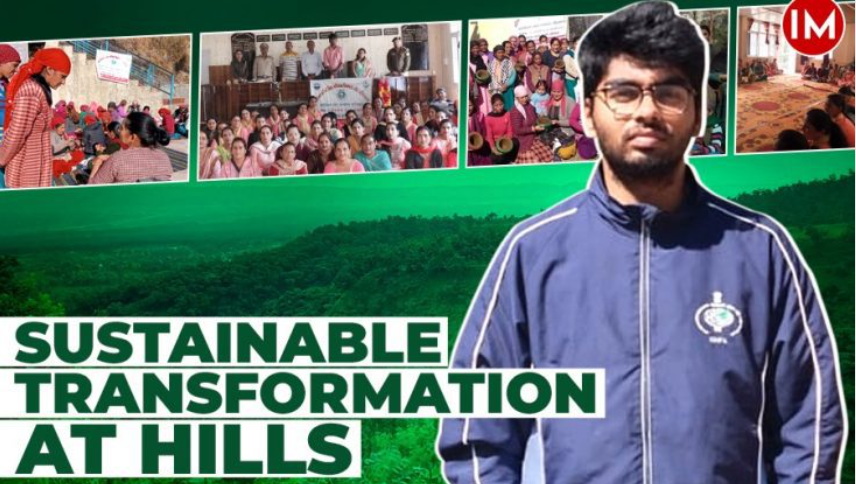
Forests play a crucial role in sustaining life on Earth, providing vital resources such as clean air, water, and habitat for countless species. However, unsustainable exploitation of forests for fuel, timber, agricultural expansion, and uneven grazing has led to deforestation, biodiversity loss, and adverse impacts on local communities. In response, the concept of eco-development offers a promising approach to reducing forest dependency while promoting sustainable livelihoods and conserving biodiversity.
The 2019 batch IFS officer, N Ravisankar, took the initiative of eco development which is changing the scenario through participatory conservation in Shimla Wildlife Division, HP. His efforts are now providing alternate livelihood and income generation opportunities to forest dependent communities residing inside or in the ESZ (eco-sensitive zone) areas of the protected areas to offset anthropogenic disturbance. Moreover, Mr. Ravisankar’s efforts are galvanizing goodwill between the forest department and the local community.
Indian Masterminds interacted with Mr. Ravisankar, Deputy Conservator of Forest, Shimla Wildlife Division, to learn more about his initiative and the impact that it has generated.

ECO DEVELOPMENT
The Shimla Wildlife Division has seven protected areas, including six wildlife sanctuaries and one national park, spread in the Shimla, Solan, and Sirmour districts of Himachal Pradesh. Thousands of people are living in these areas, especially in forest villages.
Mr. Ravisankar and his team took the initiative to correct the anomaly of hilly areas and initiate a program of eco development throughout the protected areas through a sequence of steps last year.
Initially, dependent villages were identified, followed by the identification of individuals and households within these villages with a significant reliance on forests and belonging to lower socio-economic strata. Subsequently, thorough consultations were conducted with these individuals and households regarding opportunities for livelihood generation, community asset requirements, energy-efficient devices, training and skill development needs, and participation in community-based ecotourism initiatives.
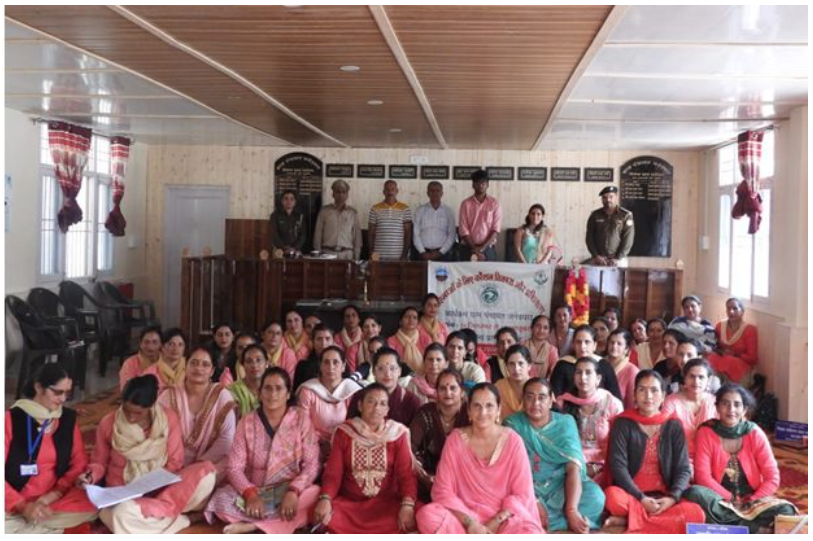
A key part of eco-development is the entry point activity, which is the first point of interaction and where trust and goodwill sprout between forest department and the villagers. In this regard, entry point activities were planned for the local community as per the consultation held with them, as well as the scope of income generation and alternate livelihoods.
More than 800 people were trained through various skills. Most of them are women and few of them are already started earning. He also involved many NGOs in his efforts so that funds wouldn’t be a problem.
WILDLIFE SANCTURY
Efforts towards ecological development in the Chail Wildlife Sanctuary included conducting Pine Needle and Food Processing Training sessions specifically tailored for women residing in villages within the ESZ of the sanctuary.
A similar initiative was launched in Shimla Water Catchment Wildlife Sanctuary with a training program organized for women of villages in Chamyana panchayat falling in ESZ area of the sanctuary related to soap manufacture and food processing.
These training programs witnessed the enthusiastic participation of over hundreds of women from the villages adjacent to the sanctuary, many of whom expressed their deep gratitude to the department and the wildlife wing for such an initiative. The development of these skills among the local community would empower the people by providing them another channel of income and enhancing their dignity and social standing.
Mr. Ravisankar said, “The majority of them were also from socially and economically backward classes of society, lending greater footing to the training program.”
SHGs WITH SHOPS
Mr Ravisankar also took initiative to hand over the eco shops under its control to women’s self help groups in various places. The shops were being operated by the HP Zoo Conservation Breeding Society and Seog Eco Tourism Society.
These shops were previously managed by the HP Zoo Conservation Breeding Society and Seog Eco Tourism Society. A revenue-sharing agreement was established for the transfer of operation and management responsibilities for three of these shops.
He said, “It has provided both groups with gainful sources of income and created livelihoods for at least 50 women who are part of the group.”
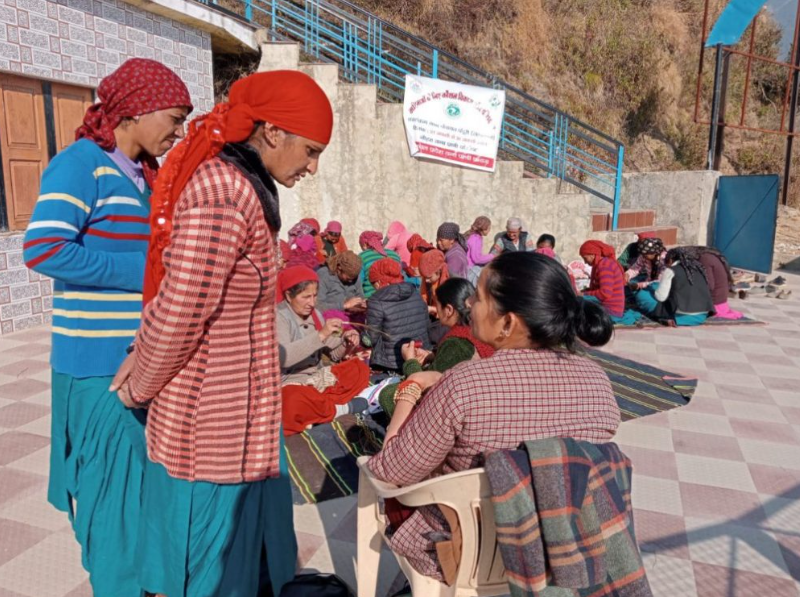
SAVING BIODIVERSITY
The sanctuaries boast 793 plant taxa, including rare species like the Himalayan Pit Viper and Assam cascade frog. Yet, it battles biotic pressure due to surrounding villages relying heavily on its resources.
Eco development offers a solution, empowering women with alternative livelihoods and safeguarding this biodiversity haven.
In this regard, the eco development paradigm is a game changer, providing alternate livelihoods for women and weaning away their dependence on livestock rearing, thereby creating a social fence for this biodiversity treasure.
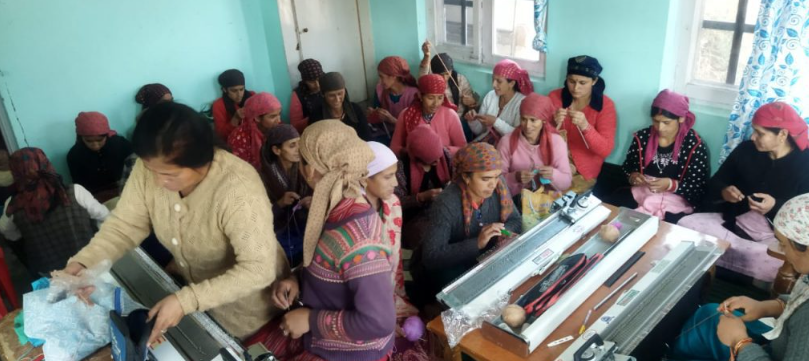
IMPACT
In 2023-24, the forest division initiated skill development programs in pine needle handicrafts, dhoop agarbati manufacturing, knitting, stitching, and food processing.
Benefiting around 800 individuals in buffer villages like Nohradhar, Devna, Choras, Talangna, and Chhogtali, the aim is to foster interest and provide alternate livelihoods, garnering support for conservation efforts.
Additionally, a module on securing forward market linkages has been introduced, covering HIMIRA shops, cluster group sales points, Eco Shops, national and international fairs, and e-commerce options, ensuring the sustainability of learned skills.
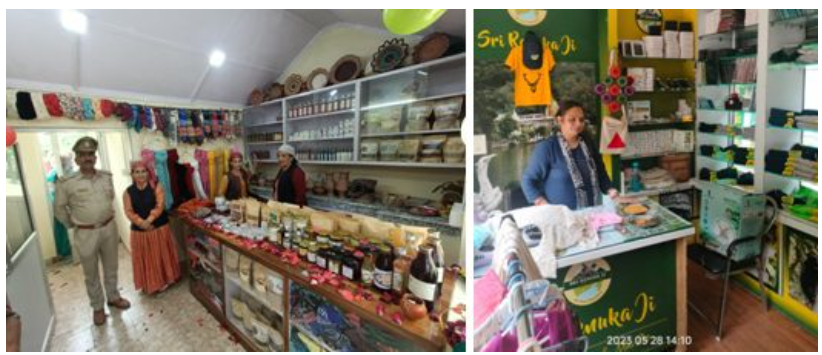
FUTURE AIMS
The next phase of the eco development program involves establishing eco development committees (EDCs) to collaborate with Range Forest Officers. These committees will focus on creating income sources, managing revenue, and allocating funds for conservation efforts.
Exploiting the revenue potential of Protected Areas through activities like trekking/hiking, particularly in Churdhar and Chail Wildlife Sanctuaries, will engage youth as nature guides, fostering wildlife awareness.
Eco tourism, operated through EDCs with revenue sharing and reinvestment for conservation education, will promote sustainable tourism, benefiting both ecology and economy.
Mr Ravisankar said, “Community support is crucial for conservation in the state, especially in areas facing visitor influx, eco tourism, and threats like fire and poaching. Expanding the Wildlife Wing’s informant network and fostering goodwill are keys.”
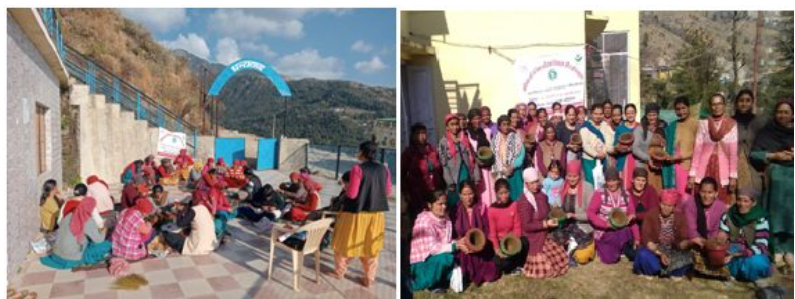
WIDE APPRECIATION
Initiative taken by him are now getting applause from IFS Officers’ Association of Himachal (HIMIFS). The association said, “Mr. Ravisankar and his dedicated team are a wonderful example of the Nexus of Good. It presents a model that can and should be replicated and scaled by other states through public-private partnership.”
Article Credit: indianmasterminds